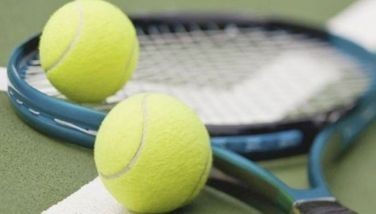Hooligans an asset, liability for Russian government
MARSEILLE, France — The Russian soccer hooligans who have fought with rival supporters at the European Championship in France have at various times been both an asset and a liability to the Russian authorities.
While the often-nationalist hardcore fans provide a reserve of support for adventurous foreign policy moves and a bulwark against domestic protests, they can also threaten public order at home and embarrass Russia abroad as it seeks global prestige by hosting the 2018 World Cup.
When Russian hooligans fought with English fans in the city of Marseille on Saturday (Sunday in Manila) and then attacked them inside the stadium, the response in Russia was mixed. While Sports Minister Vitaly Mutko said Sunday (Monday) that those involved in disorder had "disgraced the country," state media pushed the view that they had been provoked into violence, with one broadcaster portraying street battles in Marseille's Old Port as a heroic Russian victory over English attackers.
"Most people (in Russia) think the Russians were right" in Saturday's fighting, said Evgeny Dzichkovsky, a columnist for Russia's Sovetsky Sport newspaper. "A minority thinks they were just fighters who went there to start a conflict."
The Russian state's complex relationship with hardcore fans was defined in 2010, when thousands of fans angered by the death of a Spartak Moscow supporter in a fight with migrants from Russia's North Caucasus occupied Manezh square near the Kremlin in a protest which turned into a race riot, with non-Slavic passers-by beaten and stabbed.
Despite the disorder being some of the most serious in Russia in recent years, police took a comparatively restrained approach, avoiding mass arrests. In a sign of conciliation, then-Prime Minister Vladimir Putin laid flowers at the grave of the dead Spartak Moscow supporter.
"It was a typical populist gesture, and you have to say that the fans took it as a sign of support from those in power," said Natalia Yudina, whose Moscow-based Sova Center monitors racism in Russian society, including at sports events.
Alexander Baunov, an analyst at the Carnegie Moscow Center, says that while many nationalist fans in 2010 were critical of the government, they have since rallied to the Kremlin after "the Russian state exceeded their expectations" with the annexation of Crimea in 2014. In the event of future demonstrations, they could take to the streets as "groups of pro-Kremlin fighters," Baunov argues.
An example of the intersection between fans and politics is the All-Russian Fans' Union, which holds semi-official status with Russian football's governing body and is led by Alexander Shprygin, a former assistant to Igor Lebedev, a lawmaker and soccer official who publicly backed Russian hooligans involved in Saturday's violence. In turn, Lebedev is the son of Vladimir Zhirinovsky, the leader of the LDPR party in the Russian parliament, a group which is stridently nationalist but rarely makes serious criticism of the government.
Shprygin is also a former leader of a hardcore Dynamo Moscow fan group and has been accused of involvement with far-right and racist groups by Yudina's Sova Center and Fare, an anti-discrimination group affiliated with UEFA.
When the AP visited his offices last year, a T-Shirt was on display bearing the face of a former Torpedo Moscow player who was convicted of killing a man from Kyrgyzstan during a fight. Shprygin admitted he had repeatedly posted images of far-right symbols on social media, but insisted they were meant "not as propaganda," but as illustrations of how the Russian fan scene used to be.
When French authorities arrested Shprygin and dozens of other Russian fans Tuesday in an investigation following Saturday's violence, the Russian Foreign Ministry summoned the French ambassador for an official protest, warning that France was stoking "anti-Russian" feeling.
Hardcore fan groups, which include some hooligans, can benefit from "unofficial support and approval" from the authorities, says Dzichkovsky. In recent years, that has included some groups gaining the rights to distribute discounted tickets to games, or free charter flights for Shprygin's group on the majority-state-owned airline Aeroflot.
Many hardcore fans hold nationalist views and are strong supporters of Russia's foreign policy in the Ukraine crisis. The same views can also lead to racist incidents at games. Banners brought a charge of racist behavior by fans from European Championship organizer UEFA after Saturday's game in Marseille.
Hooligan groups in Russia are well organized forces with many members boasting martial arts training. From the 2010 riots to numerous smaller battles with police in and around stadiums across Russia, they have proved a challenge for Russian law enforcement.
Many on the hooligan scene served in the military thanks to Russia's system of conscription, and some appear to have fought with Russian-backed separatists during the conflict in eastern Ukraine, to judge by postings on internet forums favored by hardcore fans.
"It's not surprising because the radical section of the Russian nationalists went to war," Yudina said. "I think they all came back at some stage, which is also not very good because they've come back with combat experience and a tendency for violence."
- Latest
- Trending


























